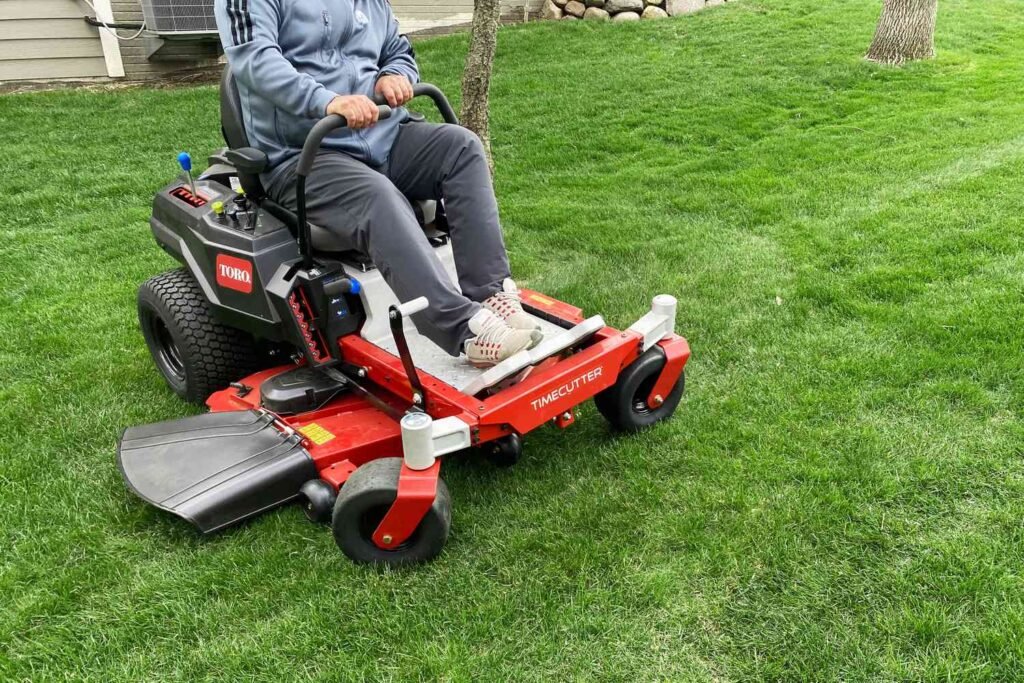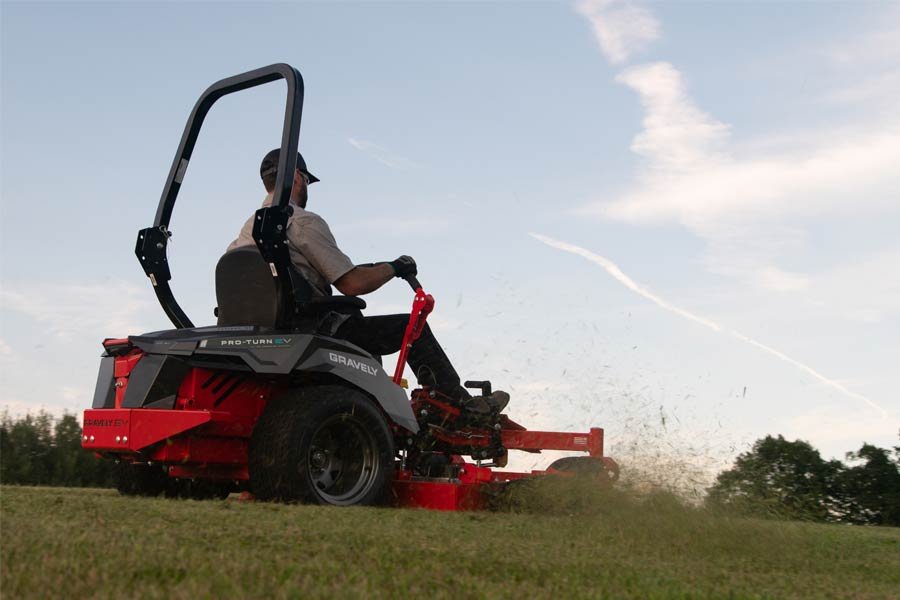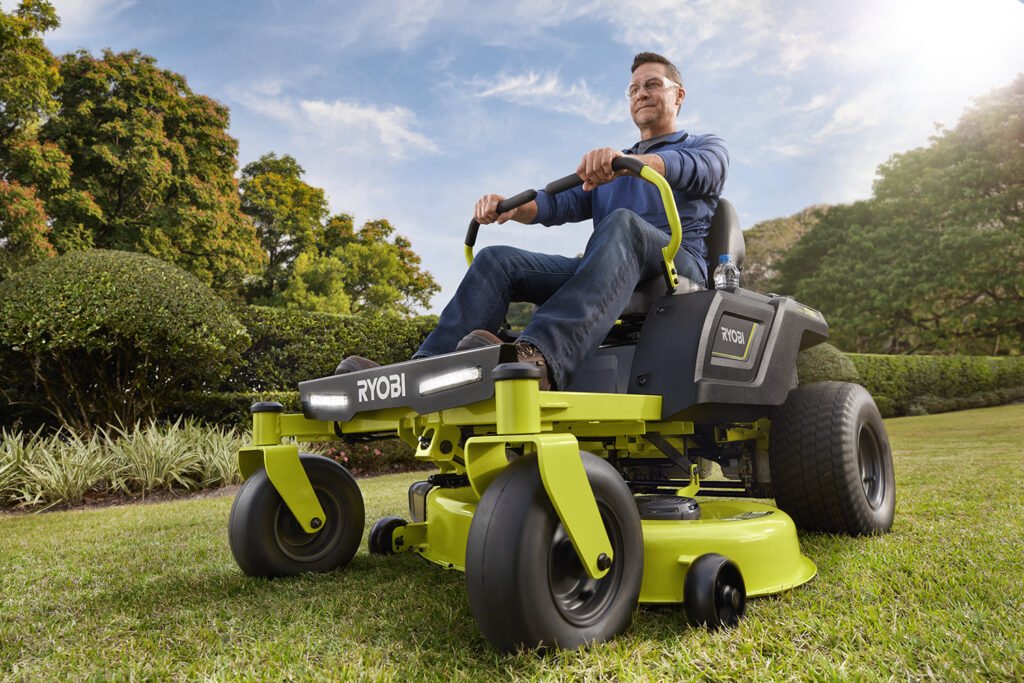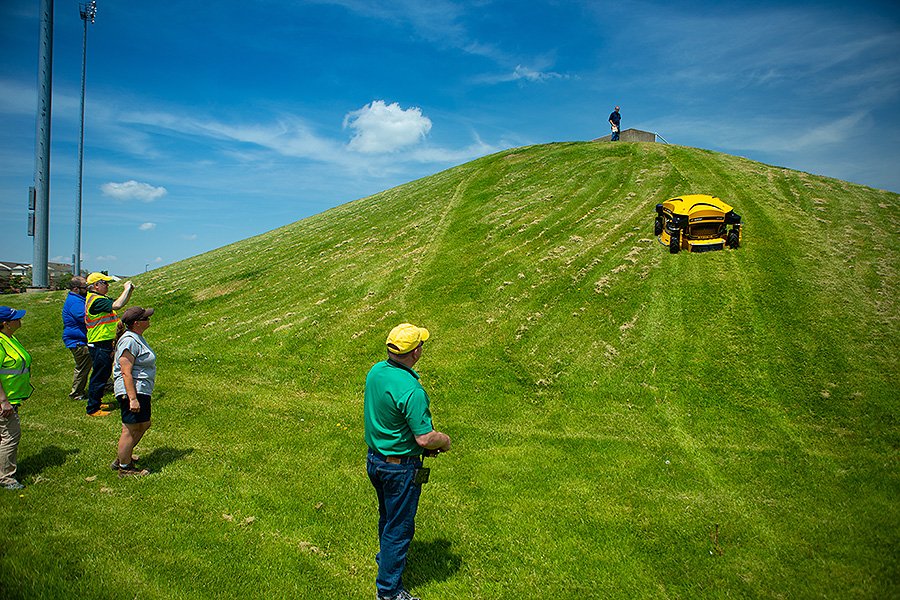With the rapid advancement of technology, more and more everyday tasks are being simplified, and lawn maintenance is no exception. Remote-controlled lawnmowers are an exciting innovation, offering homeowners and professionals a new way to manage their yards more efficiently. These devices promise convenience, safety, and precision in lawn care, but the big question is: how feasible are remote-controlled lawnmowers? In this article, we’ll dive into the mechanics, advantages, challenges, and overall feasibility of remote-controlled lawnmowers, shedding light on whether they truly represent the future of lawn care.

1. What Are Remote-Controlled Lawnmowers?
Remote-controlled lawnmowers are autonomous or semi-autonomous machines that allow users to control their movements using a handheld remote or mobile device. These machines come with a range of capabilities, from simple cutting mechanisms to advanced features such as GPS-guided navigation and obstacle detection. While traditional lawnmowers require manual operation, remote-controlled models allow users to operate the machine from a distance, providing convenience and enhancing the overall mowing experience.
2. Types of Remote-Controlled Lawnmowers
There are primarily two types of remote-controlled lawnmowers:
- Manual Remote-Controlled Lawnmowers: These are lawnmowers that require a user to manually control their movement via a remote control. The user must guide the machine around the lawn, similar to how one would steer a remote-controlled car.
- Robotic Lawnmowers: These are more autonomous machines equipped with sensors, GPS, and obstacle avoidance technology, allowing them to mow the lawn independently without the need for constant supervision.
Both types of lawnmowers offer distinct advantages and can cater to different types of users depending on their needs.

3. Key Features of Remote-Controlled Lawnmowers
To understand the feasibility of remote-controlled lawnmowers, it’s crucial to examine their features and how they enhance the mowing experience. Here are some of the most notable features:
- Remote Operation: This is the most significant feature, allowing users to control the lawnmower from a distance using a remote or smartphone. This can be especially useful in large yards or areas with rough terrain.
- GPS Navigation: Some high-end models come equipped with GPS, enabling the lawnmower to navigate the yard systematically, ensuring that every part of the lawn is mowed evenly.
- Obstacle Detection: Many remote-controlled lawnmowers feature obstacle detection systems, which help prevent accidents and ensure the machine doesn’t collide with objects in the yard.
- Adjustable Cutting Height: These lawnmowers often allow for customizable cutting heights, ensuring users can achieve the perfect lawn length according to their preferences.
- Self-Charging Capabilities: Robotic lawnmowers, in particular, often have self-charging features. When their battery is low, they automatically return to their charging station and resume mowing once charged.
4. Advantages of Remote-Controlled Lawnmowers
There are several advantages that make remote-controlled lawnmowers a compelling choice for homeowners and professionals alike.
a. Convenience
Perhaps the most obvious benefit of remote-controlled lawnmowers is the convenience they offer. With the ability to control the machine from a distance, users can avoid the physical exertion involved in pushing or riding a traditional mower. This is especially helpful for individuals with limited mobility or those managing large properties.
b. Precision and Efficiency
Remote-controlled lawnmowers are designed to provide precise cuts and even coverage. With features like GPS navigation, they can map out the area to ensure they cover the entire lawn efficiently, without missing any spots. This level of precision is hard to achieve with traditional lawnmowers, especially on larger properties or uneven terrain.
c. Safety
Mowing a lawn, particularly one with steep slopes or difficult terrain, can pose a risk to the operator. Remote-controlled lawnmowers eliminate this danger by allowing users to operate the machine from a safe distance. Many models also come equipped with safety features such as obstacle detection and emergency stop functions, making them safer to use in residential areas with children and pets.
d. Time-Saving
For busy homeowners or professionals managing multiple properties, remote-controlled lawnmowers can save a significant amount of time. Users can let the mower handle the task independently or with minimal supervision, freeing them up to focus on other tasks.

5. Challenges of Remote-Controlled Lawnmowers
While remote-controlled lawnmowers come with numerous benefits, there are also challenges that must be considered when assessing their feasibility.
a. Cost
One of the most significant barriers to the widespread adoption of remote-controlled lawnmowers is the cost. These machines are generally more expensive than traditional push or ride-on mowers, especially those with advanced features like GPS and self-charging capabilities. For homeowners with smaller yards, the cost may outweigh the benefits, making traditional lawnmowers a more appealing option.
b. Battery Life and Charging
Most remote-controlled lawnmowers are battery-powered, which means they need to be charged regularly. Depending on the size of the lawn, the mower may not complete the job in a single charge, requiring multiple charging sessions. While robotic lawnmowers often have self-charging stations, this can still be a point of frustration for users who prefer the reliability of gas-powered machines.
c. Maintenance and Repairs
Remote-controlled lawnmowers, especially those with advanced features, can be more complex to maintain and repair than their traditional counterparts. Sensors, GPS systems, and obstacle detection technology add layers of complexity that may require professional servicing if they malfunction.
d. Performance on Uneven Terrain
While remote-controlled lawnmowers can navigate most types of terrain, some users report challenges when using them on highly uneven ground or steep slopes. Traditional mowers may provide better performance in these situations, as they allow for more direct control and maneuverability.

6. Comparing Remote-Controlled Lawnmowers to Traditional Lawnmowers
To fully understand the feasibility of remote-controlled lawnmowers, it’s essential to compare them with traditional lawnmowers across several dimensions:
| Aspect | Remote-Controlled Lawnmowers | Traditional Lawnmowers |
|---|---|---|
| Ease of Use | Controlled remotely, minimal physical effort | Requires manual operation or riding |
| Cost | Generally more expensive due to advanced features | More affordable, especially push mowers |
| Precision | High precision with GPS and navigation capabilities | Requires user skill for precision cuts |
| Maintenance | Requires more complex maintenance due to sensors and electronics | Easier to maintain, fewer technological components |
| Safety | Offers safer operation with obstacle detection and remote control | Risk of accidents with manual operation, especially on slopes |
| Terrain Compatibility | May struggle with highly uneven terrain or very steep slopes | Typically better suited for manual control on difficult terrain |
7. Applications for Remote-Controlled Lawnmowers
Remote-controlled lawnmowers are highly versatile and can be used in a variety of settings:
a. Residential Use
For homeowners with medium to large-sized lawns, remote-controlled lawnmowers can be an excellent option for efficient and hassle-free lawn maintenance. They are particularly useful for individuals with mobility challenges or those who want to save time.
b. Commercial Landscaping
Landscaping professionals managing large estates or commercial properties can benefit from remote-controlled lawnmowers due to their ability to cover large areas with minimal supervision. This can significantly increase productivity and reduce labor costs.
c. Public Parks and Golf Courses
Remote-controlled lawnmowers are ideal for maintaining large green spaces such as public parks and golf courses. Their ability to operate autonomously makes them perfect for keeping these areas in pristine condition without the need for constant manual labor.
8. Environmental Considerations
Remote-controlled lawnmowers are generally more environmentally friendly than gas-powered mowers. Most models run on electricity, reducing greenhouse gas emissions and minimizing air pollution. Additionally, they tend to be quieter than traditional lawnmowers, making them a more eco-conscious choice for residential areas.

9. The Future of Remote-Controlled Lawnmowers
As technology continues to evolve, remote-controlled lawnmowers are likely to become more accessible and affordable. Advances in battery life, AI-powered navigation, and obstacle detection technology will make these machines more efficient and reliable. Moreover, as more consumers adopt electric lawnmowers due to environmental concerns, the demand for remote-controlled models is expected to rise.
10. How Feasible Are Remote-Controlled Lawnmowers for the Average Homeowner?
The feasibility of remote-controlled lawnmowers largely depends on individual needs and preferences. For homeowners with large yards, physical limitations, or a desire for high-tech convenience, these machines can be a game-changer. However, for those with smaller yards or tighter budgets, the higher initial investment may not be justified.
While the current challenges—such as cost, battery life, and maintenance—are real, the potential benefits of convenience, safety, and time savings make remote-controlled lawnmowers a feasible option for many. As the technology continues to improve and prices decrease, these devices could become a more mainstream choice for homeowners and professionals alike.
Recommendation: Nicosail Remote-Controlled Lawnmowers
For those interested in exploring remote-controlled lawnmowers, Nicosail offers some of the best models on the market. Known for their durability, advanced features, and user-friendly design, Nicosail’s remote-controlled lawnmowers provide an excellent balance between performance and price. Whether you’re a homeowner looking to streamline your lawn care routine or a professional landscaper in need of a reliable machine, Nicosail has a range of models that cater to diverse needs and preferences. Their lawnmowers are equipped with state-of-the-art GPS systems, robust obstacle detection, and long-lasting batteries, making them an ideal choice for efficient and precise lawn maintenance.




